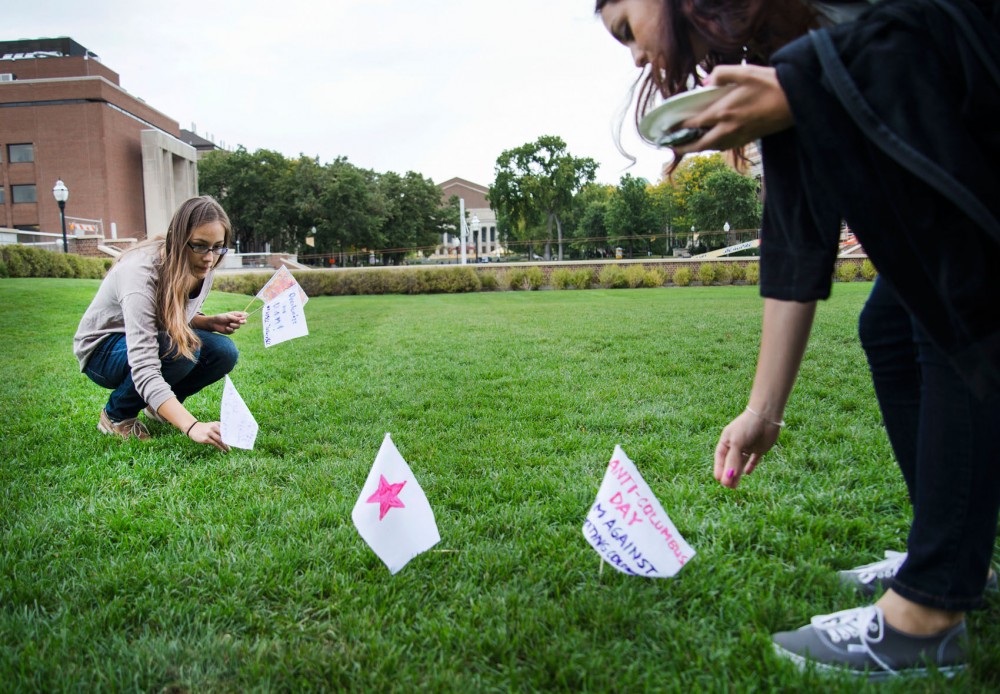Pressing a small white flag into the ground outside of Coffman Union on Monday, urban studies senior Stephanie Zadora claimed the land for herself.
She was one of several University of Minnesota students who planted flags in front of Coffman to symbolize how colonists claimed land as their own when they first arrived in America.
The demonstration was part of Anti-Columbus Day, an event held by the American Indian Student Cultural Center and La Raza Student Cultural Center to highlight lesser-known facts about Christopher Columbus’ first contact with America and to celebrate indigenous resistance.
Though students may have been taught to celebrate the discovery of America with Columbus Day on the second Monday of each October, they’re rarely taught about the impact of Columbus’ arrival on indigenous people, said AISCC vice president Christopher Hammerly.
The student groups, based alongside other multicultural groups on Coffman’s second floor, want to spread awareness about why celebrating Columbus Day can be hurtful to indigenous people today, he said.
When they arrived in America, European colonists introduced disease to indigenous people and forced many to relocate. Some scholars estimate the indigenous population decreased by tens of millions.
Historical trauma to indigenous people stemming from Columbus’ arrival in America still resonates today, said Gabriela Spears-Rico, a University academic adviser and University of California-Berkeley doctoral candidate who led an Anti-Columbus Day discussion on campus Monday.
Columbus Day is often thought about as a celebration of progress, Spears-Rico said, but some disagree with that idea.
“Along with that comes a set of stereotypes that we have preserved about indigenous people,” she said. One such stereotype, she said, is that indigenous people are uncivilized or didn’t make significant contributions to civilization after Columbus’ arrival.
Spears-Rico supplemented Monday’s discussion with videos about local indigenous resistance and the wider movement to replace Columbus Day with a holiday celebrating indigenous people.
In the past, the AISCC and La Raza held a luncheon to discuss group members’ stances against the national holiday’s celebration of colonialism.
The groups added the flag demonstration this year to further illustrate their message; draw more students, faculty and staff to the discussion; and make the issue more visible.
Hammerly said he hopes Anti-Columbus Day prompts students to start thinking about how they learn history and what might be left out of those lessons.
Zadora said planting the flags was a good way to bring the issue of colonialism past Coffman’s second floor and to the rest of
campus.
“The activity really brings the discussion out,” she said.


